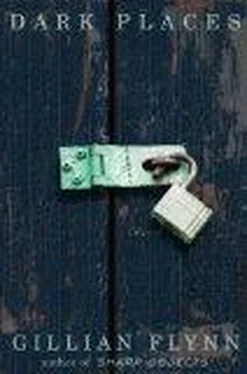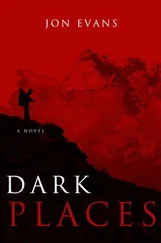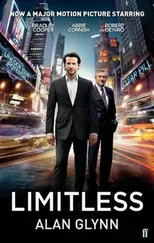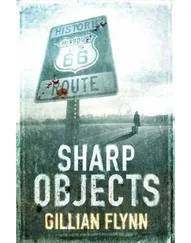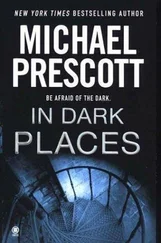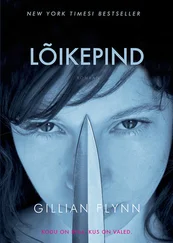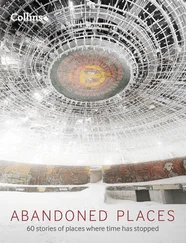Gillian Flynn - Dark Places
Здесь есть возможность читать онлайн «Gillian Flynn - Dark Places» весь текст электронной книги совершенно бесплатно (целиком полную версию без сокращений). В некоторых случаях можно слушать аудио, скачать через торрент в формате fb2 и присутствует краткое содержание. Жанр: Старинная литература, на русском языке. Описание произведения, (предисловие) а так же отзывы посетителей доступны на портале библиотеки ЛибКат.
- Название:Dark Places
- Автор:
- Жанр:
- Год:неизвестен
- ISBN:нет данных
- Рейтинг книги:5 / 5. Голосов: 1
-
Избранное:Добавить в избранное
- Отзывы:
-
Ваша оценка:
- 100
- 1
- 2
- 3
- 4
- 5
Dark Places: краткое содержание, описание и аннотация
Предлагаем к чтению аннотацию, описание, краткое содержание или предисловие (зависит от того, что написал сам автор книги «Dark Places»). Если вы не нашли необходимую информацию о книге — напишите в комментариях, мы постараемся отыскать её.
Dark Places — читать онлайн бесплатно полную книгу (весь текст) целиком
Ниже представлен текст книги, разбитый по страницам. Система сохранения места последней прочитанной страницы, позволяет с удобством читать онлайн бесплатно книгу «Dark Places», без необходимости каждый раз заново искать на чём Вы остановились. Поставьте закладку, и сможете в любой момент перейти на страницу, на которой закончили чтение.
Интервал:
Закладка:
Also by Gillian Flynn SHARP OBJECTS

TO MY DASHING HUSBAND,
BRETT NOLAN
The Days were a clan that mighta lived long
But Ben Day’s head got screwed on wrong
That boy craved dark Satan’s power
So he killed his family in one nasty hour
Little Michelle he strangled in the night
Then chopped up Debby: a bloody sight
Mother Patty he saved for last
Blew off her head with a shotgun blast
Baby Libby somehow survived
But to live through that ain’t much a life
—SCHOOLYARD RHYME, CIRCA 1985
Libby Day NOW
Ihave a meanness inside me, real as an organ. Slit me at my belly and it might slide out, meaty and dark, drop on the floor so you could stomp on it. It’s the Day blood. Something’s wrong with it. I was never a good little girl, and I got worse after the murders. Little Orphan Libby grew up sullen and boneless, shuffled around a group of lesser relatives—second cousins and great-aunts and friends of friends—stuck in a series of mobile homes or rotting ranch houses all across Kansas. Me going to school in my dead sisters’ hand-me-downs: Shirts with mustardy armpits. Pants with baggy bottoms, comically loose, held on with a raggedy belt cinched to the farthest hole. In class photos my hair was always crooked—barrettes hanging loosely from strands, as if they were airborne objects caught in the tangles—and I always had bulging pockets under my eyes, drunk-landlady eyes. Maybe a grudging curve of the lips where a smile should be. Maybe.
I was not a lovable child, and I’d grown into a deeply unlovable adult. Draw a picture of my soul, and it’d be a scribble with fangs.
IT WAS MISERABLE ,wet-bone March and I was lying in bed thinking about killing myself, a hobby of mine. Indulgent afternoon daydreaming: A shotgun, my mouth, a bang and my head jerking once, twice, blood on the wall. Spatter, splatter. “Did she want to be buried or cremated?” people would ask. “Who should come to the funeral?” And no one would know. The people, whoever they were, would just look at each other’s shoes or shoulders until the silence settled in and then someone would put on a pot of coffee, briskly and with a fair amount of clatter. Coffee goes great with sudden death.
I pushed a foot out from under my sheets, but couldn’t bring myself to connect it to the floor. I am, I guess, depressed. I guess I’ve been depressed for about twenty-four years. I can feel a better version of me somewhere in there—hidden behind a liver or attached to a bit of spleen within my stunted, childish body—a Libby that’s telling me to get up, do something, grow up, move on. But the meanness usually wins out. My brother slaughtered my family when I was seven. My mom, two sisters, gone: bang bang, chop chop, choke choke. I didn’t really have to do anything after that, nothing was expected.
I inherited $321,374 when I turned eighteen, the result of all those well-wishers who’d read about my sad story, do-gooders whose hearts had gone out to me . Whenever I hear that phrase, and I hear it a lot, I picture juicy doodle-hearts, complete with bird-wings, flapping toward one of my many crap-ass childhood homes, my little-girl self at the window, waving and grabbing each bright heart, green cash sprinkling down on me, thanks, thanks a ton! When I was still a kid, the donations were placed in a conservatively managed bank account, which, back in the day, saw a jump about every three–four years, when some magazine or news station ran an update on me. Little Libby’s Brand New Day: The Lone Survivor of the Prairie Massacre Turns a Bittersweet 10. (Me in scruffy pigtails on the possum-pissed lawn outside my Aunt Diane’s trailer. Diane’s thick tree-calves, exposed by a rare skirt, planted in the yellow grass behind me.) Brave Baby Day’s Sweet 16! (Me, still miniature, my face aglow with birthday candles, my shirt too tight over breasts that had gone D-cup that year, comic-book sized on my tiny frame, ridiculous, porny.)
I’d lived off that cash for more than thirteen years, but it was almost gone. I had a meeting that afternoon to determine exactly how gone. Once a year the man who managed the money, an unblinking, pink-cheeked banker named Jim Jeffreys, insisted on taking me to lunch, a “checkup,” he called it. We’d eat something in the twenty-dollar range and talk about my life—he’d known me since I was this-high, after all, heheh. As for me, I knew almost nothing about Jim Jeffreys, and never asked, viewing the appointments always from the same kid’s-eye view: Be polite, but barely, and get it over with. Single-word answers, tired sighs. (The one thing I suspected about Jim Jeffreys was that he must be Christian, churchy—he had the patience and optimism of someone who thought Jesus was watching.) I wasn’t due for a “checkup” for another eight or nine months, but Jim Jeffreys had nagged, leaving phone messages in a serious, hushed voice, saying he’d done all he could to extend the “life of the fund,” but it was time to think about “next steps.”
And here again came the meanness: I immediately thought about that other little tabloid girl, Jamie Something, who’d lost her family the same year—1985. She’d had part of her face burned off in a fire her dad set that killed everyone else in her family. Any time I hit the ATM, I think of that Jamie girl, and how if she hadn’t stolen my thunder, I’d have twice as much money. That Jamie Whatever was out at some mall with my cash, buying fancy handbags and jewelry and buttery department-store makeup to smooth onto her shiny, scarred face. Which was a horrible thing to think, of course. I at least knew that.
Finally, finally, finally I pulled myself out of bed with a stage-effect groan and wandered to the front of my house. I rent a small brick bungalow within a loop of other small brick bungalows, all of which squat on a massive bluff overlooking the former stockyards of Kansas City. Kansas City, Missouri, not Kansas City, Kansas. There’s a difference.
My neighborhood doesn’t even have a name, it’s so forgotten. It’s called Over There That Way. A weird, subprime area, full of dead ends and dog crap. The other bungalows are packed with old people who’ve lived in them since they were built. The old people sit, gray and pudding-like, behind screen windows, peering out at all hours. Sometimes they walk to their cars on careful elderly tiptoes that make me feel guilty, like I should go help. But they wouldn’t like that. They are not friendly old people—they are tight-lipped, pissed-off old people who do not appreciate me being their neighbor, this new person. The whole area hums with their disapproval. So there’s the noise of their disdain and there’s the skinny red dog two doors down who barks all day and howls all night, the constant background noise you don’t realize is driving you crazy until it stops, just a few blessed moments, and then starts up again. The neighborhood’s only cheerful sound I usually sleep through: the morning coos of toddlers. A troop of them, round-faced and multilayered, walk to some daycare hidden even farther in the rat’s nest of streets behind me, each clutching a section of a long piece of rope trailed by a grown-up. They march, penguin-style, past my house every morning, but I have not once seen them return. For all I know, they troddle around the entire world and return in time to pass my window again in the morning. Whatever the story, I am attached to them. There are three girls and a boy, all with a fondness for bright red jackets—and when I don’t see them, when I oversleep, I actually feel blue. Bluer. That’d be the word my mom would use, not something as dramatic as depressed . I’ve had the blues for twenty-four years.
Читать дальшеИнтервал:
Закладка:
Похожие книги на «Dark Places»
Представляем Вашему вниманию похожие книги на «Dark Places» списком для выбора. Мы отобрали схожую по названию и смыслу литературу в надежде предоставить читателям больше вариантов отыскать новые, интересные, ещё непрочитанные произведения.
Обсуждение, отзывы о книге «Dark Places» и просто собственные мнения читателей. Оставьте ваши комментарии, напишите, что Вы думаете о произведении, его смысле или главных героях. Укажите что конкретно понравилось, а что нет, и почему Вы так считаете.
